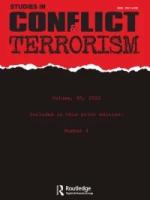What can we learn from the challenges faced by al-Qaeda and Islamic State in South Asia?
For several years, al-Qaeda and the Islamic State (IS) have tried to extend their presence in South Asia beyond their strongholds in Afghanistan and Pakistan. However, their influence in Bangladesh, India, the Maldives, Myanmar and Sri Lanka has remained very limited. What can explain their lack of success in these countries? This question provides the point of departure for a new article by Dino Krause, published in Studies in Conflict and Terrorism. The article forms part of a special issue, guest-edited by DIIS Senior Researcher Mona Kanwal Sheikh.
The article highlights two factors. First, with the exception of Myanmar, all of the investigated countries have allowed for the democratic inclusion of Islamic and Islamist political parties. These parties have mobilized support among the same population segments as al-Qaeda and IS, thereby acting as competitors. Second, the two organizations have faced further competition from local Islamist armed groups. Rather than joining al-Qaeda or IS, many of these local militants have preferred to maintain a local focus, as they have been able to draw upon support from other external sponsors.
Overall, these findings provide important insights for governments of countries that are currently struggling with the risk of jihadist infiltration.
DIIS Experts



